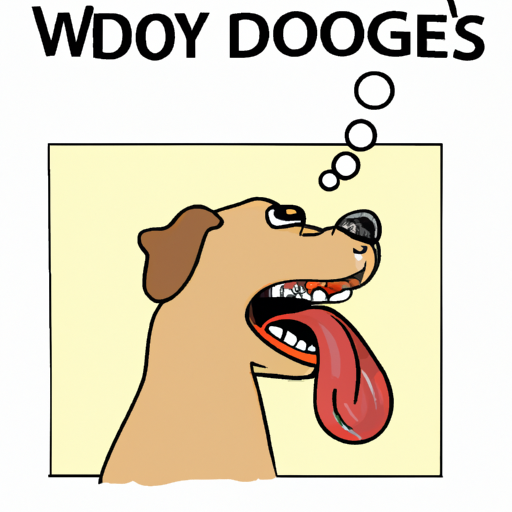As a caregiver, you may often wonder why your furry companion drools. Well, you’ve come to the right place, as we’re about to dive into the ins and outs of why dogs drool!
Understanding the Basics of Drooling
Firstly, let’s understand this: drooling is normal for dogs. It’s a natural process that helps them digest food and protect their oral health. Dogs drool due to the production of saliva, which plays a crucial role in their digestion process.
- Saliva helps break down food.
- It neutralizes acids that can harm your dog’s teeth.
- It also helps in swallowing and digestion.
However, excessive drooling can sometimes be a sign of certain health problems, which brings us to our next section.
Potential Health Problems
Some health problems that could cause your dog to drool excessively include:
- Oral diseases: Tooth decay, gum disease, or oral tumors can cause excessive drooling.
- Heat Stroke: Dogs can drool excessively when they’re overheated.
- Foreign Objects: Something stuck in your dog’s mouth, like a piece of bone or a toy, can cause them to drool.
| Potential Issue | Symptoms | Actions |
|---|---|---|
| Oral Diseases | Bad breath, difficulty eating | Visit vet |
| Heat Stroke | Rapid panting, bright red tongue | Cool down, provide water |
| Foreign Objects | Pawing at mouth, agitation | Check mouth, visit vet |
The Role of Breed
Certain dog breeds are more prone to drooling than others. For instance, Saint Bernards, Bloodhounds, and Bulldogs are known as ‘heavy droolers’. The shape of their mouths and lips leads to more drooling.
On the other hand, breeds like the Boston Terrier or Dalmatian don’t drool as much. If you notice your ‘non-drooling’ breed dog suddenly drooling excessively, it may be a sign of a health issue.
How to Manage Drooling
Caring for a drooling dog can be a bit messy, but it doesn’t have to be a huge problem. Here are a few tips:
- Keep a small towel or drool rag handy, especially after your dog drinks water.
- Regularly clean your dog’s mouth and check for any abnormalities.
Remember, excessive drooling accompanied by other symptoms might warrant a visit to the vet.
Dealing with Drool: A Psychological Perspective
Finally, as a caregiver, it’s important not to express disgust or annoyance at your dog’s drooling. Dogs are very sensitive to their human’s emotions. If they sense that you’re upset, it might cause them unnecessary stress.
FAQs
Q: My dog is drooling excessively. Should I be worried?
A: It’s best to consult with a vet if there’s a sudden increase in your dog’s drooling.
Q: Is drooling a sign of pain in dogs?
A: It can be. If your dog seems to be in discomfort and is drooling, it’s a good idea to visit the vet.
Q: Can I stop my dog from drooling?
A: Drooling is a natural process, but managing it is possible with regular cleaning and vet check-ups.
Q: Does drooling mean my dog is hungry?
A: Sometimes, yes. Dogs often drool more when they see or smell food.
In conclusion, understanding why dogs drool can help you provide a more comfortable and healthier environment for your furry friend. It’s all part of being a great caregiver to your pet!



